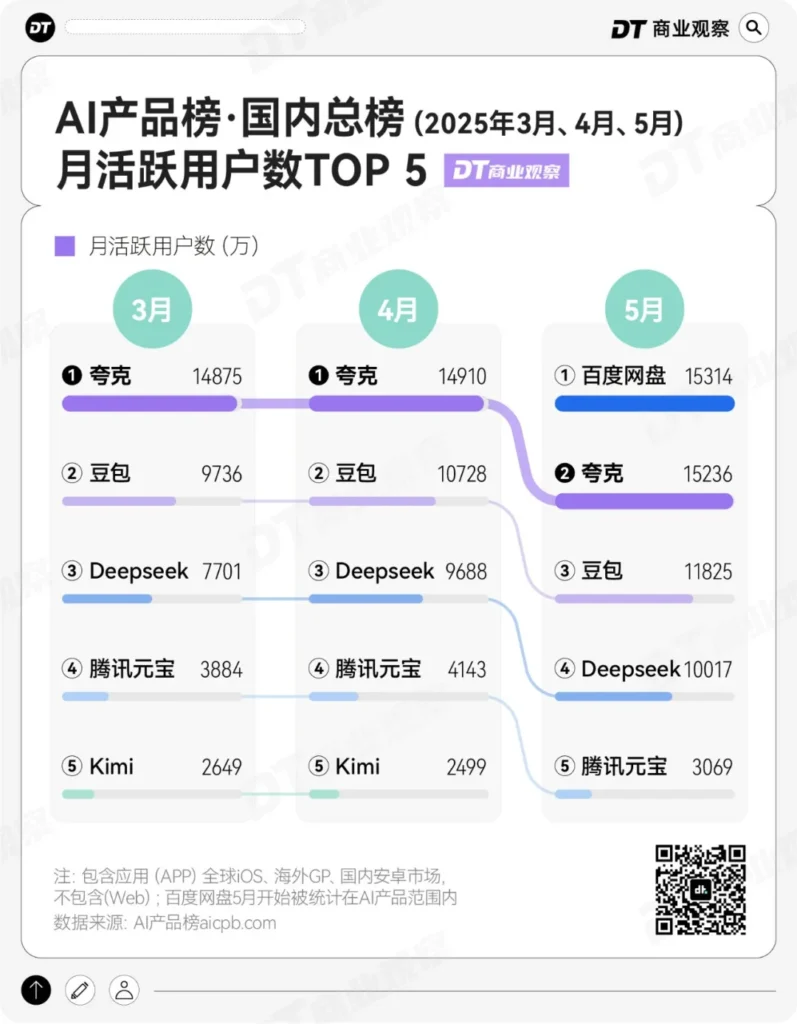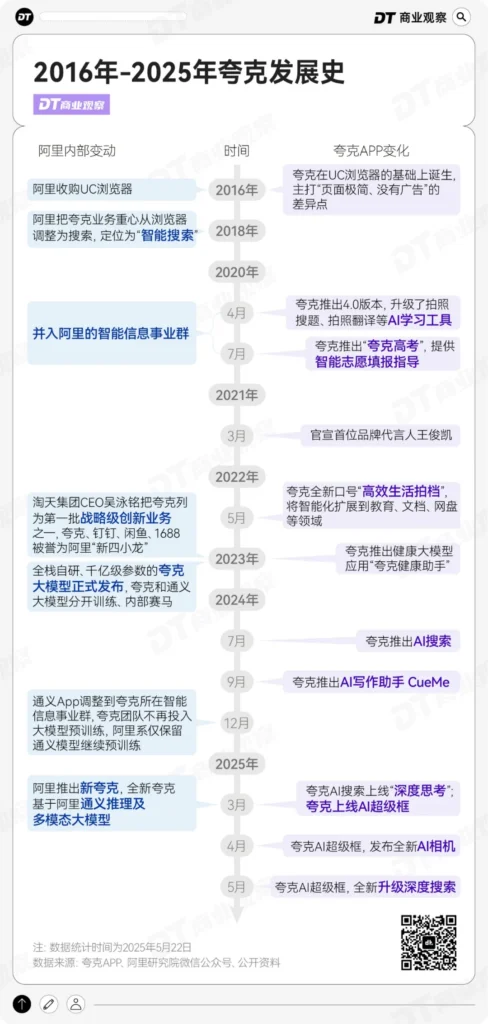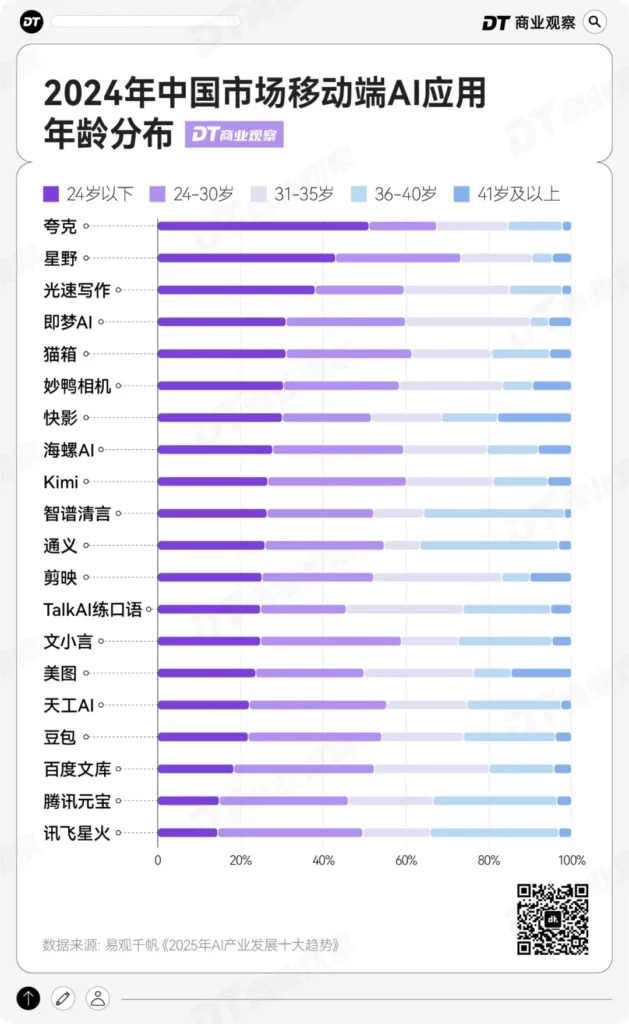In March and April, Quark climbed to the top of China’s AI app rankings with nearly 150 million monthly active users, overtaking CiCi. The sudden surge left many asking: wasn’t Quark just a browser?

Back in 2016, Alibaba set out to build an ad-free, clutter-free alternative to China’s chaotic browser scene. Quark was the result—branded as a clean, distraction-free search engine. Its minimalist design quickly caught on with younger users. By 2018, Alibaba repositioned Quark as an “intelligent search” tool, focusing on students. Since then, it’s rolled out AI features tailored to exam-takers, especially around China’s annual gaokao, cementing its grip on the student crowd.

Things shifted in 2023, the breakout year for generative AI. As large models went mainstream, Quark launched its own by year’s end. In the race for traffic, having an existing user base matters—and Quark had one that already embraced AI. Students and white-collar workers, who are quick to adopt new tools, gave the app a head start. According to The Economic Observer, most of Quark’s new users are also young—exactly the demographic Alibaba sees as its long-term edge.

Now, Alibaba is positioning Quark as a “super entry point” to the AI era—a streamlined hub that merges AI chat, deep search, research, and task execution in one simple interface. But staying ahead won’t be easy. Rivals are moving fast. Take Tencent’s QQ Browser. One of its latest features, “AI Gaokao Assistant,” helps students generate personalized university recommendations. The target audience is the same, and with over 400 million monthly users—more than double Quark’s—QQ Browser remains a serious competitor.
As Gartner VP Sun Xin told China Business Network, “Large models may not be profitable yet, but as traffic gateways, they open up huge opportunities.” With monetization still uncertain, tech giants are doubling down on user acquisition—and Quark’s rise shows just how fierce the battle is becoming.




